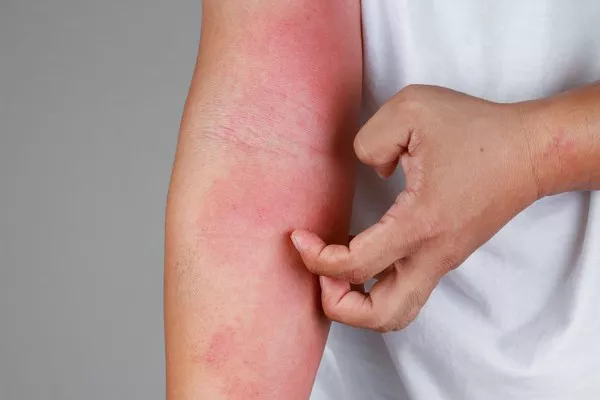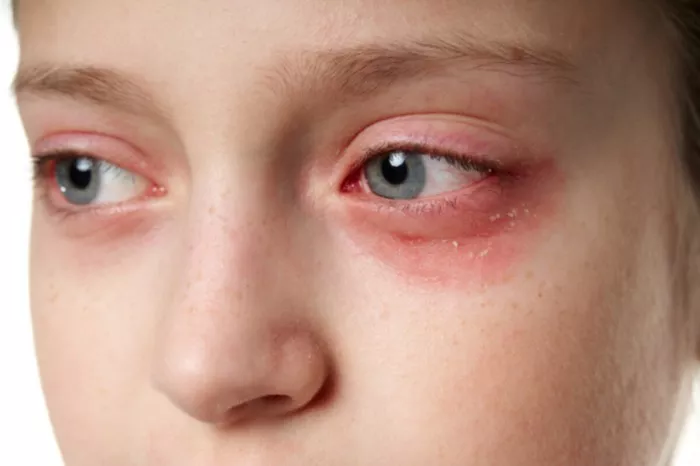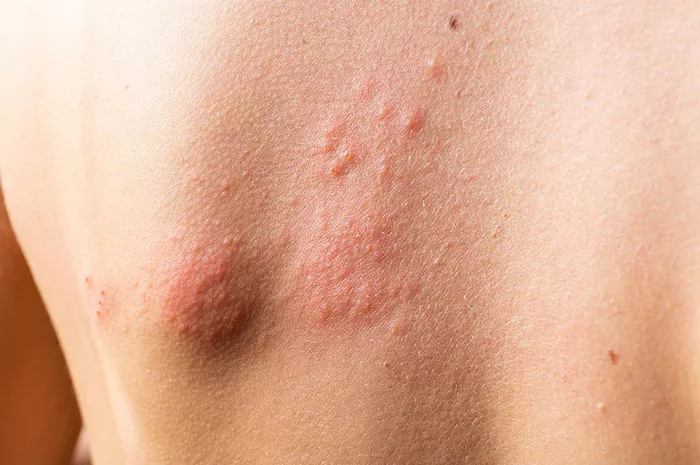Eczema, also known as atopic dermatitis, is a common skin condition that leads to red, inflamed, and itchy rashes. It can affect people of all ages, but it is most common in infants and young children. The condition often appears in patches and can flare up in response to various triggers, such as irritants, allergens, stress, or temperature changes. While eczema is not curable, there are many effective ways to treat and manage the rash, reducing symptoms and preventing flare-ups. This article will guide you through the most common and effective methods for treating eczema rash.
What Is Eczema?
Eczema is an inflammatory skin condition that causes itching, dryness, redness, and swelling. The rash can appear anywhere on the body but is commonly seen on the face, hands, feet, behind the knees, and in the crooks of elbows. Eczema can vary in severity, from mild, small patches to widespread, intense rashes.
The exact cause of eczema is not fully understood, but it is thought to be linked to a combination of genetic factors and environmental triggers. Eczema is often associated with other conditions like asthma, hay fever, and food allergies.
Symptoms of Eczema Rash
The symptoms of eczema can differ from person to person, but common signs include:
Itching: The itchiness associated with eczema can be intense and persistent.
Red, inflamed skin: The affected skin area may appear red, swollen, and irritated.
Dry, flaky skin: Eczema often causes the skin to become dry and cracked, leading to flakiness.
Thickened skin: Chronic scratching and rubbing can cause the skin to thicken, a condition known as lichenification.
Blisters or oozing: In severe cases, the rash may form blisters that break open and ooze fluid.
Understanding these symptoms will help you identify eczema early and start treating it before it worsens.
Treatment Options for Eczema Rash
While there is no cure for eczema, there are several treatment options available to manage symptoms, reduce flare-ups, and improve the quality of life for those affected. These treatments include lifestyle changes, topical treatments, medications, and natural remedies. Here is a detailed breakdown of each.
1. Moisturize Regularly
Moisturizing is one of the most important steps in treating eczema. Keeping the skin hydrated helps reduce dryness and prevents the skin from becoming cracked and irritated.
Use thick creams or ointments: Opt for rich, emollient creams or ointments, which help to lock in moisture. These are often more effective than lotions, which may contain alcohol or other ingredients that can dry out the skin.
Apply moisturizer immediately after bathing: Apply a thick layer of moisturizer while your skin is still damp to trap moisture in the skin. This can significantly reduce itching and dryness.
Moisturize multiple times a day: In severe cases, moisturizing up to four times a day can help keep eczema under control.
2. Topical Steroid Creams
Topical corticosteroids, commonly referred to as steroid creams, are among the most commonly used treatments for eczema. They work by reducing inflammation, relieving itching, and helping the skin heal.
Mild steroids: For mild eczema, low-potency steroids like hydrocortisone cream may be enough to control symptoms.
Stronger steroids: In cases of more severe eczema, your doctor may prescribe stronger topical steroids, such as betamethasone or clobetasol.
Limit use: While effective, long-term use of steroid creams can lead to side effects, such as skin thinning. Always follow your doctor’s instructions regarding application frequency and duration.
3. Non-Steroidal Topical Treatments
If you’re concerned about the side effects of steroids, or if your eczema doesn’t respond to them, there are non-steroidal treatments available.
Topical calcineurin inhibitors: Medications like tacrolimus (Protopic) and pimecrolimus (Elidel) help suppress the immune system’s overreaction that causes eczema flare-ups. These medications are particularly useful for treating eczema on sensitive areas like the face or eyelids.
Moisturizing ointments with ceramides: Products like CeraVe or Eucerin contain ceramides, which help restore the skin’s natural barrier and keep moisture locked in.
4. Antihistamines
Antihistamines can help control itching, especially if your eczema is triggered by allergens. These medications work by blocking histamine, a substance released during allergic reactions that causes itching.
Oral antihistamines: Over-the-counter antihistamines like diphenhydramine (Benadryl) or loratadine (Claritin) can help reduce itching and discomfort. Take these at night if they cause drowsiness.
Topical antihistamines: Some creams contain antihistamines that may help alleviate itching. However, they are not recommended for long-term use.
5. Antibacterial and Antifungal Treatments
In cases where eczema leads to open sores or cracks, the skin becomes vulnerable to bacterial or fungal infections. If an infection occurs, your doctor may recommend antibiotic or antifungal creams or oral medications.
Topical antibiotics: Creams containing mupirocin (Bactroban) can help treat skin infections caused by bacteria.
Oral antibiotics: If the infection is widespread, your doctor may prescribe oral antibiotics like dicloxacillin or cephalexin.
Antifungal creams: If the eczema rash is infected with fungi, antifungal treatments such as clotrimazole or terbinafine may be necessary.
6. Wet Wrap Therapy
Wet wrap therapy can be an effective way to treat severe eczema flare-ups and help moisturize and soothe the skin.
How it works: This treatment involves applying a thick layer of moisturizer to the affected areas, then wrapping the skin with wet bandages or clothing. This technique helps increase the absorption of moisturizers and allows the skin to heal more quickly.
When to use: Wet wraps are often used for severe eczema or when other treatments are not working. This method is typically done overnight for several nights in a row.
7. Phototherapy (Light Therapy)
For chronic or severe eczema that doesn’t respond to topical treatments, phototherapy may be an option. This treatment involves exposing the skin to ultraviolet (UV) light under controlled conditions.
How it works: Phototherapy helps to reduce inflammation and slow the rapid growth of skin cells, which is a characteristic of eczema.
Under medical supervision: Phototherapy should always be done under the supervision of a dermatologist, as overexposure to UV light can cause skin damage and increase the risk of skin cancer.
8. Oral Medications
For those with moderate to severe eczema, oral medications may be prescribed to help control symptoms and reduce flare-ups.
Oral corticosteroids: In extreme cases, a short course of oral corticosteroids, such as prednisone, may be prescribed. However, long-term use of oral steroids can cause serious side effects, so they are typically used only for short periods.
Immunosuppressive drugs: Medications like methotrexate, cyclosporine, or azathioprine suppress the immune system’s overreaction and help manage severe eczema. These are typically used in more serious cases.
JAK inhibitors: Newer medications like tofacitinib (Xeljanz) or baricitinib (Olumiant) are oral Janus kinase (JAK) inhibitors that target specific molecules involved in inflammation. These are prescribed for people with moderate to severe eczema who do not respond to other treatments.
9. Lifestyle and Home Remedies
Along with medical treatments, certain lifestyle changes and home remedies can help prevent flare-ups and manage eczema more effectively.
Avoid triggers: Eczema can be triggered by various factors, including stress, harsh soaps, perfumes, certain fabrics, hot weather, and allergens like dust mites, pet dander, or pollen. Identifying and avoiding these triggers can help reduce flare-ups.
Take lukewarm baths: Hot water can dry out the skin and worsen eczema. Use lukewarm water and add gentle, moisturizing bath products such as colloidal oatmeal or bath oils.
Wear soft, breathable clothing: Choose clothing made of soft, cotton fabrics. Avoid wool or synthetic fibers, which can irritate the skin.
Manage stress: Stress can trigger or worsen eczema flare-ups. Practice stress-reducing techniques like yoga, meditation, or deep breathing exercises.
10. Diet and Supplements
Although no single food is proven to cause eczema, some people find that certain foods can exacerbate their symptoms. Consider the following dietary adjustments:
Anti-inflammatory diet: Foods rich in omega-3 fatty acids, such as salmon, flaxseeds, and walnuts, may help reduce inflammation.
Avoid potential allergens: If you suspect certain foods may be triggering your eczema, keep a food diary and eliminate potential allergens, such as dairy, gluten, or eggs, under the guidance of a healthcare provider.
Probiotics: Some studies suggest that probiotics may help improve eczema symptoms by promoting a healthy gut microbiome. Talk to your doctor before starting any new supplements.
Conclusion
Eczema is a chronic condition that can cause significant discomfort, but with the right treatment and management plan, the symptoms can be controlled effectively. Moisturizing regularly, using topical treatments, and avoiding triggers are key steps in managing eczema. If over-the-counter treatments do not provide relief, it is essential to consult a dermatologist for prescription options and personalized advice. With patience and proper care, many people with eczema can lead comfortable, symptom-free lives.
Related topics:


























